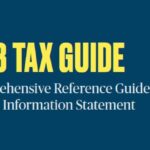With Congress now having passed a $3.5 trillion budget blueprint, legislators have moved one step closer toward anticipated tax policy changes.
However, an arduous process remains. The blueprint now must be translated into a detailed bill, with multiple committees needing to craft their portions in such a way to secure agreement among all 50 Senate Democrats and nearly all House Democrats, moderate to progressive, a behemoth feat.
That said, potential changes to tax code took center stage in financial planning. Now is a good time to review which proposals remain on the table, the likelihood that they pass and any forward-looking planning you may want to consider as legislators continue to negotiate.
Current Proposals
The blueprint gives the Senate Finance Committee wide latitude to draft policies that would increase tax rates for corporations and individuals making more than $400,000 a year. Below we provide six specific proposals that continue to move forward and the likelihood that they pass — based on what appears to be the consensus view.1
01 | Raising the individual income tax rate.
D E T A I L S : Increase the top individual ordinary income tax rate from 37% to 39.6% for families making $400,000 or more.
L I K E L I H O O D : High but possibly amended. This change is relatively small and would bring the rate back to where it was in 2017 prior to the Tax Cuts and Jobs Act.2 However, it is possible that negotiations result in a rate somewhere in between the current 37% and proposed 39.6% rates.
02 | Raising the top corporate income tax rate
D E T A I L S : Increase the top corporate income tax rate from 21% to 28%.
L I K E L I H O O D : High but likely amended. Many Democrats will likely oppose such a large increase. A more likely outcome would be to boost the rate to 25%.
03 | Increasing the tax rate for long-term capital gains and qualified dividends.
D E T A I L S : Raise the long-term capital gains and qualified dividend tax rate from 20% to 39.6% (+3.8% net investment income tax) for families making more than $1 million. Further, in its Green Book release in late May, the Biden Administration suggested this change may be retroactive, that gains recognized “after the date of announcement”3 (rather than the effective date of the law), would be subject to the higher rate.
L I K E L I H O O D : High but likely amended. The consensus seems to be that, if raised, the rate might increase to a range of 25-30% and would likely not be retroactively applied.
04 | Increasing the State and Local Tax (SALT) deduction
D E T A I L S : Increase the current SALT cap beyond its current $10,000. The SALT deduction allows taxpayers who itemize deductions to reduce their federal tax bill by a portion of their state and local taxes paid. In a memo to Democratic senators, the Senate Budget Committee explicitly asks lawmakers to make the deduction more generous.4
L I K E L I H O O D : High but to an unknown amount. More than 20 House Democrats have voiced opposition to legislation which doesn’t include a higher SALT deduction.5 But it remains unclear whether the deduction will be increased or fully repealed.
05 | Repealing the step-up in cost basis at death
D E T A I L S : Realized capital gains exceeding $1 million per individual would be recognized on assets transferred upon one’s death or as a gift. Currently, the cost basis of appreciated assets is “stepped-up” to fair market value as of the date of death.
L I K E L I H O O D : Unclear. This is a controversial proposal that may encounter pushback from both sides of the aisle and would be a sharp departure from tax code dating back to 1921.
06 | Increasing taxes paid on carried interest
D E T A I L S : Raise the taxes hedge fund and private equity partners pay on their share of income on an “investment services partnership interest” (ISPI) from capital gains to ordinary income tax rates if the partner’s taxable income (from all sources) exceeds $400,000.6
L I K E L I H O O D : Somewhat likely. This proposal may have bipartisan support, but industry advocates have historically helped thwart prior efforts to change the taxation of carried interest. It’s quite possible that tax policy in this area changes but to a lesser extent than currently proposed.7
Planning Opportunities to Discuss with Your Advisors
Although policy uncertainty persists and will persist in the coming weeks as negotiations evolve, now is a good time to discuss potential planning opportunities with your trusted team of advisors. Examples include (but are certainly not limited to):
- Whether or not to accelerate income (where possible) and realize long-term capital gains
- Reconsidering deferred compensation elections
- Roth IRA conversions
- Improving asset location — placing tax-inefficient assets in tax-deferred accounts and vice-a-vera
- Reviewing the financial implications of changing your primary residence to a lower-tax state if you are considering doing so
- Wealth transfer strategies to take advantage of the currently high estate tax exemption amount, which if not changed sooner (it is not currently part of the proposals put forth), will “sunset” and revert lower after 2025.
The above are only examples of the types of strategies you may want to discuss with your advisors and are not appropriate for every individual. And as you consider the various opportunities available to you, it’s important to keep one guiding principle in mind: Let your definition of success, the purpose and vision behind your wealth, rather than uncertain tax policy, drive your decisions.




